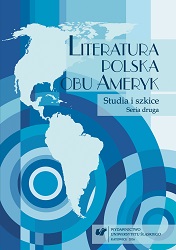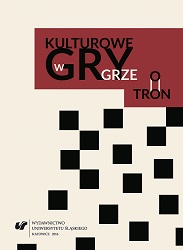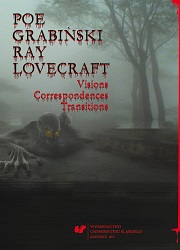
Mit rodzi(n)ny w twórczości Marka Kusiby w świetle tomu Rajskie
The present article addresses the question of family myth in the works by Marek Kusiba — a Polish poet, who has been creating his works in Canada for many years. Interpreting mainly the poem Rajskie in the context of the still unpublished volume of poetry of the same title, the authoress of the article explores autobiographical elements — mainly connected with family, emigration (meta-literary and historical) — which constitute one of the most important foundations of this lyrical proposal. The biographical optics, which in this poetry has always been firmly embedded in the cultural context, usually inspires universal findings.
More...

